Amnesty Belgium has brought human rights home to young people in Belgium through a whole series of events in 2014 which has inspired some unusual and thought-provoking activism, including teachers baring their skin, and young people sharing their taboo experiences in public spaces.
Teachers strip for human rights
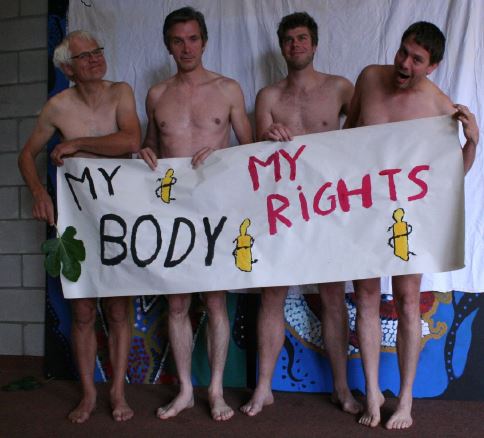
“We live in a culture where bodies are constantly being exposed but there is still a lot of taboo when it comes to rights issues. We just want to open the floor to a peaceful dialogue. And let’s be honest…on the beach you see much more than what our poster shows!” said teacher An Plaetinck.
An, along with eight other teachers from Ten Doorn College in Eeklo, East Flanders, posed nearly nude, her modesty covered by a campaign poster, to very physically demonstrate support for the My Body My Rights campaign.
Originally, it was the students who wanted to take their clothes off as an activist statement but after some discussion, both teachers and students agreed it would be better if the teachers did it themselves to support the student’s message that there is no taboo when it comes to talking about sexual and reproductive rights.

The students reacted very positively towards their teachers’support, says An. “The My Body My Rights campaign is about the right to be free to do what you want with your own body and we are doing exactly that.”
These teachers were not the only ones finding ways to break the silence. The young activist below came up with an idea to expose the truth of daily experiences which she found unacceptable.
Young activists expose street harassment
“One day I was walking with my friend through the city centre of Brussels. Both of us were wearing a skirt that day. Walking through the neighbourhood we received more than five disrespectful comments from men who were passing by, and now and then a car honked at us” explains 15 year old Jeanne Copenns, who believes fighting for sexual and reproductive rights is a priority for Belgian society.
“My friends and I are confronted with sexual comments on a daily basis. But sometimes it doesn’t end with just comments: we get touched up on the street or on public transportation by strangers. Some girls think this is normal and don’t take it as an insult. For me this is just unacceptable,” said Jeanne.
According to Jeanne, these are issues that are deeply embedded in Belgium’s cultural norms: “I’ve learnt that a lot of girls are victims of sexual harassment. It can go from inappropriate comments to unwanted contact or even worse. It happens to boys too and it is a very taboo problem for them because they strongly believe that we live in an objectifying culture where they aren’t allowed to show their ‘weakness.’”
Jeanne started raising awareness about street harassment in her school going classroom to classroom to talk with the students about their daily experiences. They developed a large board called ‘The Taboo Wall’ on which anyone could share any sexual harassment they had experienced by writing it on a piece of paper and displaying it on the board.
By sharing personal experiences the goal was to empower anyone who has been a victim of sexual harassment by giving them a voice and together raise awareness on a problem many people are not aware of. “Recently I told a friend that, as a girl, I feel unsafe in certain areas of Brussels. He was stupefied and had no idea that I had to deal with those situations on a regular basis” explains Jeanne.
The students didn’t stop there, but took their message out of the classroom and onto the street, determined to “show how big the problem is in society.” Jeanne organised the event in a busy area of central Brussels, Place de La Monnaie, displaying ‘The Taboo Wall’ and engaging with all the passers-by as well as the local media.
Young people demanding their rights
Jeanne’s ability to spread the message and engage deeply with the issue is critical to ensuring that the world’s 1.8 billion young people know about their sexual and reproductive rights, and can gather the knowledge and skills to lead campaigns to claim and promote their rights alongside their peers.
Both Jeanne and the teachers opened debates, started conversations and broke the silence around sexual and reproductive rights with children, teenagers and young adults, challenging attitudes in their own way with their own networks of contacts, as well as gaining the attention of media and the public.
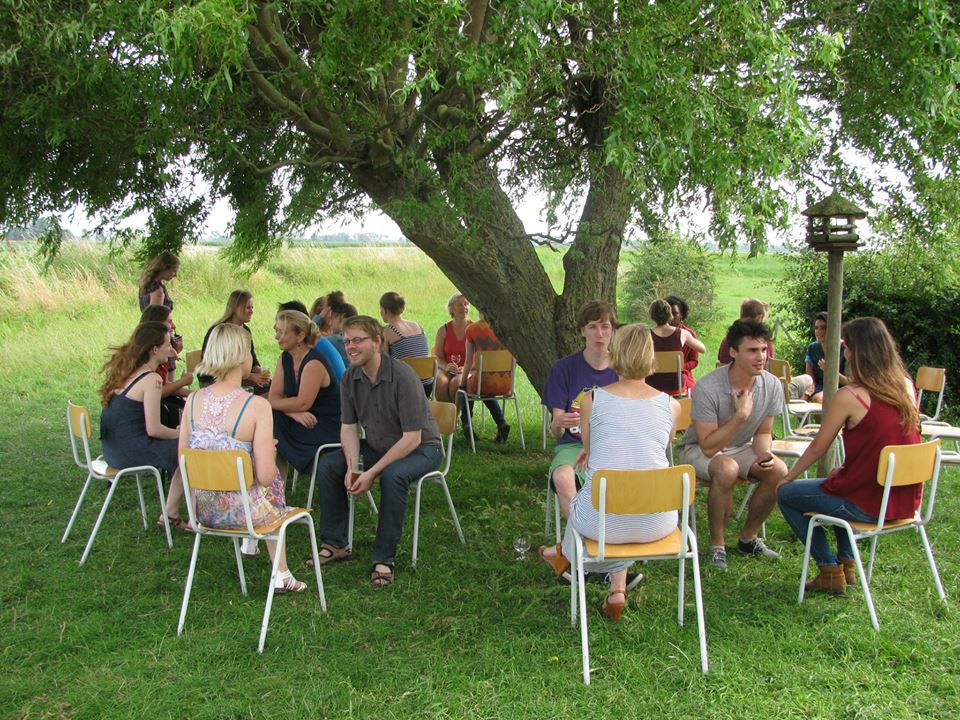
Amnesty Belgium has brought youth to the centre of the campaign to raise awareness on rights violations and mobilise support for cases of injustice. By including human rights education in three major events: the campaign launch, a Youth leadership camp and a day dedicated to ‘Write Them Free’, Amnesty Belgium brought sexual and reproductive rights home to young people to empower them to claim their rights for themselves.
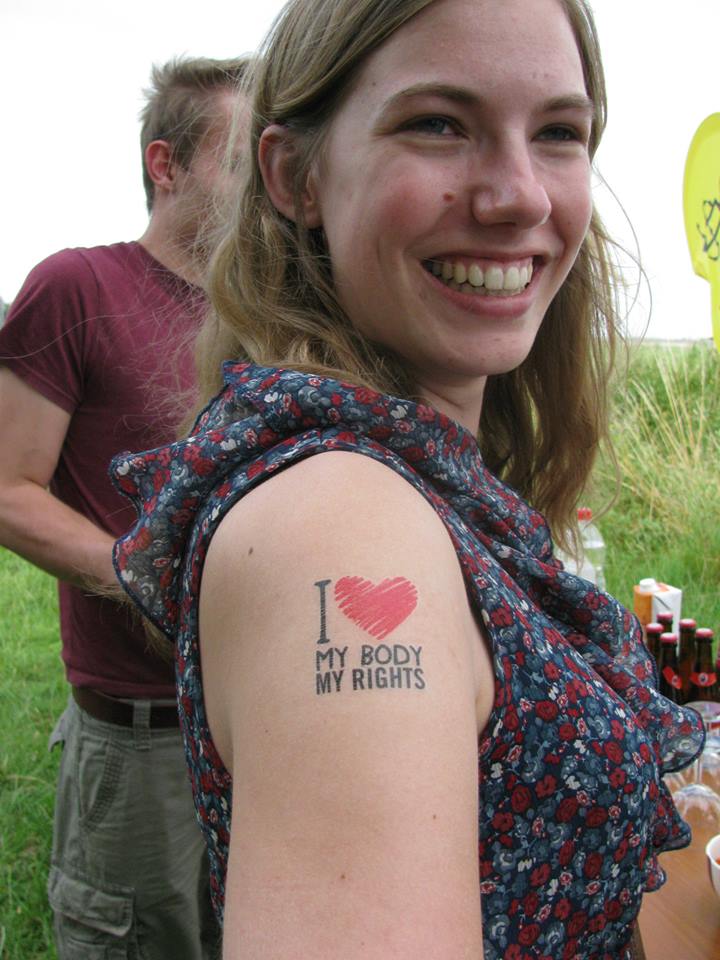
In March 2014, more than 400 young people and teachers from Brussels and Flanders participated in the My Body My Rights launch. Using participatory activities, Amnesty trained young activists to engage with their peers, they empowered students and mobilised local activists with in-depth knowledge about sexual and reproductive rights.

In mid-July Amnesty organised a Youth Leadership Camp in the coastal city of Oostende to empower young people to become leaders in the fight for human rights. 20 young activists from all backgrounds devoted their weekend to in-depth discussion and training on sexual and reproductive rights, coming away energised and motivated to share their knowledge and take action. As a result they developed workshops and activities in their school and with other Amnesty members to begin to break the silence and discuss the importance of claiming their sexual and reproductive rights.
In addition they gathered 700 signatures for a petition pressuring for a change in legislation concerning sexual and reproductive rights in Belgium. The petition was delivered to the Prime Minister in the last week of November 2014.
Finally, on 17 October Amnesty held the 24th annual edition of the ‘Write Them FREE’ day. 522 schools (with an increase of 25 schools on the previous year) took part in this sexual and reproductive rights-themed event. Educational activities were developed using the ‘Respect My Rights Respect My Dignity: Sexual and Reproductive Rights are human rights’ module together with material from the My Body My Rights campaign to encourage teachers and students from ages 10 to 18 years old to take action, including writing poetry, to change cases of injustice worldwide. Some actions were shared on this Tumblr page: https://schrijfzevrijdag.tumblr.com.
“Dear Mr. Nkosi, Don’t get too cozy,
With great power comes great responsibility,
You have to help these women to the best of your ability.
Born without rights of sexuality, Born for virility,
Lying in the field amongst the dirt and grub,
Waiting for the ambulance to show up.
All these women and children in danger, Relying on the support of a random stranger,
So much trouble to get to a clinic,
It would make anyone a cynic.
It is time to burst this toxic bubble, And stop making women give birth amongst the rubble,
In the land of change, the land of equality,
There is no place for apathy, nor room for inequity.”
A poem written by Havva Akcaoglu and Wout Brasseur, students of the H. Pius X Instituut in Belgium in solidarity for the My Body My Rights campaign, collected on the Tumblr for the Write Them Free event, 17 October 2014.
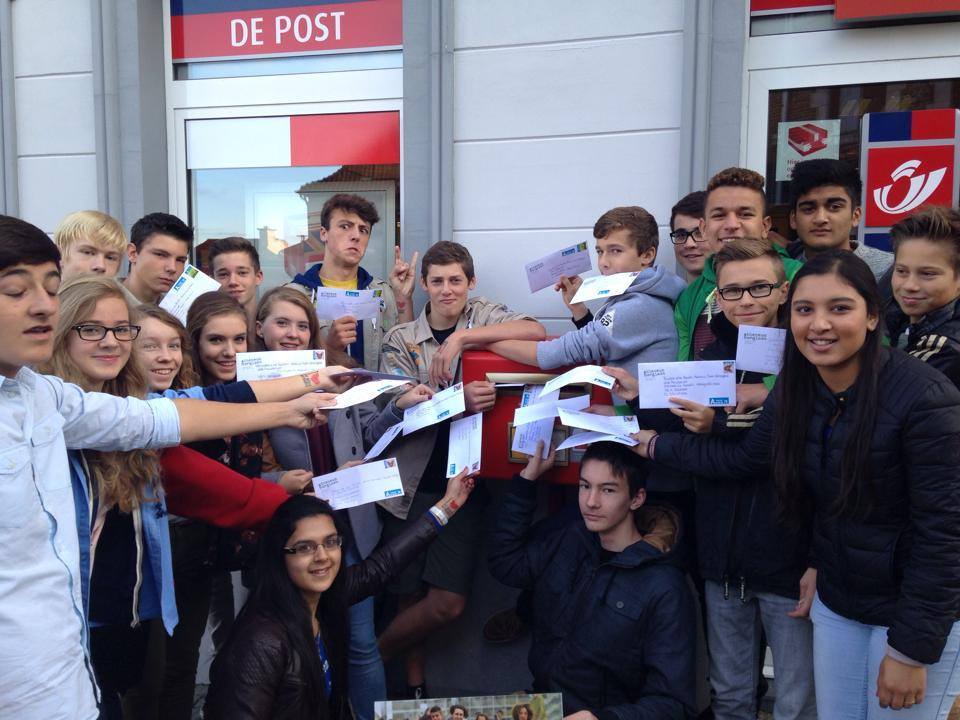
This year long human rights education work with young people led to in-depth understanding of human rights violations worldwide, as well as leading activists to draw parallels between what is happening in Belgium and what is happening in the rest of the world.
Karolien, a young activist, said, “My experience has led me to realise how important it is to have human rights defenders all over the world – and that small acts do make a difference in helping to make people realise they have choices and escape routes when they are desperate. It was wonderful to see so many other young people passionate about human rights, as I am. It was very encouraging.”
Karolien spoke of her desire to take further action to bring about meaningful change. ‘I learned the importance of awareness, tolerance and understanding. I certainly plan to continue doing actions with Amnesty, and also to further my knowledge on human rights abuses and what I can do in the future to help prevent and remedy these.’
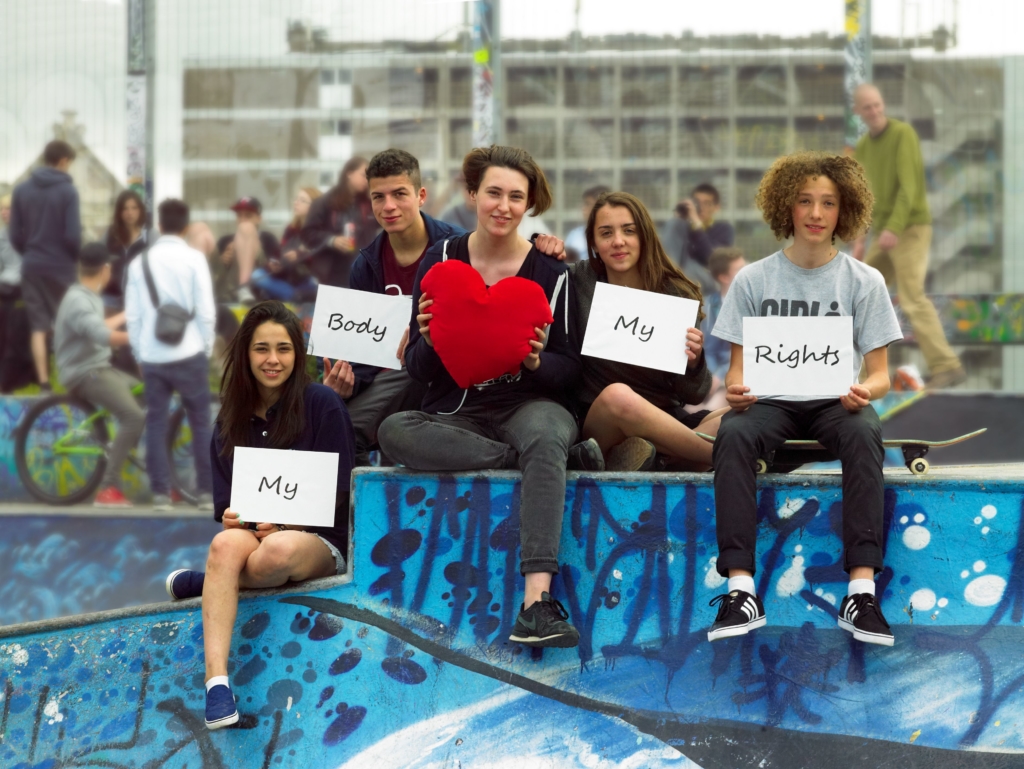
Amnesty International launched the My Body My Rights campaign in March 2014. It aims to empower individuals to make informed choices about their sexuality and reproduction, and to exercise their sexual and reproductive rights freely.
‘Module Three: Respect My Rights Respect My Dignity – Sexual and reproductive rights are human rights’ is designed to be used by and with young people and youth activists as they support their peers through individual and collective journeys of reflection, critical analysis and action. This includes having the knowledge and skills to engage in difficult conversations on a taboo subject and to stand up for sexual and reproductive rights..

